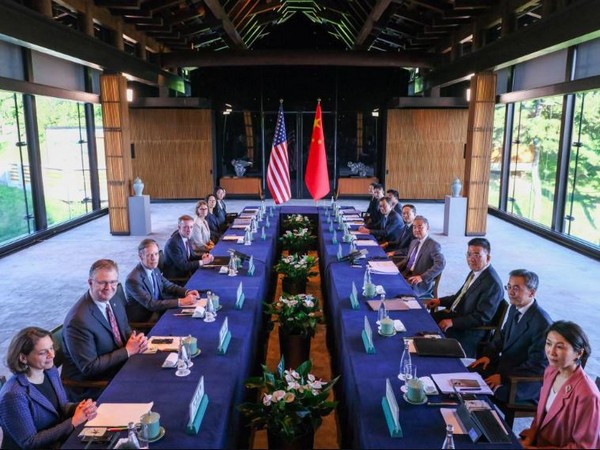High-Stakes Diplomacy: Jake Sullivan Meets Xi Jinping to Ease U.S.-China Tensions
U.S. National Security Adviser Jake Sullivan met with Chinese President Xi Jinping in Beijing, focusing on reducing tensions between the U.S. and China ahead of the November U.S. election. Key topics included Taiwan, the South China Sea, and fentanyl ingredient flows. Military ties saw some progress, but economic and trade issues remain unresolved.

U.S. National Security Adviser Jake Sullivan held critical meetings with Chinese President Xi Jinping in Beijing on Thursday, aiming to de-escalate tensions between the two global powers ahead of the November U.S. election.
During their discussion, Xi emphasized China's commitment to a stable relationship with the U.S. amidst a turbulent world. Sullivan relayed President Biden's interest in managing the U.S.-China relationship to prevent conflict.
The White House announced plans for an upcoming call between Xi and Biden, following Sullivan's 14-hour-long negotiations covering complex issues like Taiwan, the South China Sea, and fentanyl ingredient flows.
Despite some progress in military communications, substantial economic and trade disagreements remain. Sullivan confirmed no new agreements were reached on the South China Sea, describing the talks as a 'vigorous give and take' on critical issues.
Military cooperation saw a slight breakthrough as Sullivan met Xi's top military advisor, agreeing on upcoming talks between U.S. and Chinese military commanders. Senior U.S. officials acknowledged prolonged management rather than resolution of disputes like those over contested shoals with the Philippines in the South China Sea.
Before his meeting with Xi, Sullivan engaged with Zhang Youxia, a key military advisor, to enhance military communications. He also discussed the Biden-Xi talks prospect with China's top diplomat, Wang Yi, covering various global conflicts and trade issues.
Zhang's significant influence within China's military hierarchy was noted by Western and Asian diplomats. Sullivan maintained the necessity of military-to-military communication to avoid conflict.
As Biden pushes for direct diplomacy as part of his strategy ahead of the November election, analysts suggest divergent views on the approach, especially from supporters of former president Donald Trump.
(With inputs from agencies.)
ALSO READ
Taiwantrade.com Showcases Machine Tool Innovations at TIMTOS 2025
Trump's Policy Shifts: Implications for Taiwan Amid Ukraine Concerns
Taiwan Detains China-Linked Ship Amid Undersea Cable Disruption in Sensitive Waters
Taiwan Probes Chinese-Crewed Ship in Undersea Cable Saga
China's Strategic Determination on Taiwan Relations










